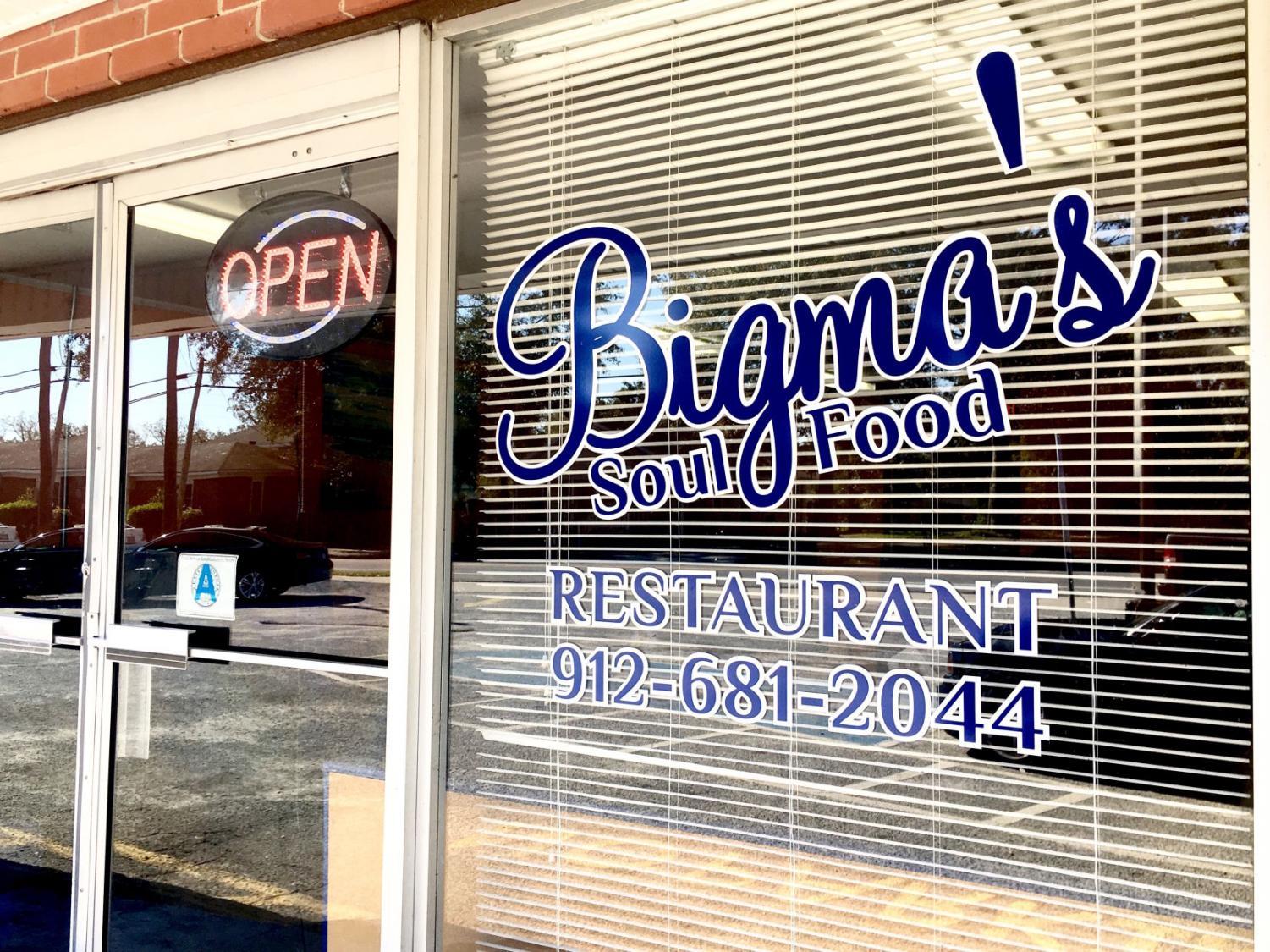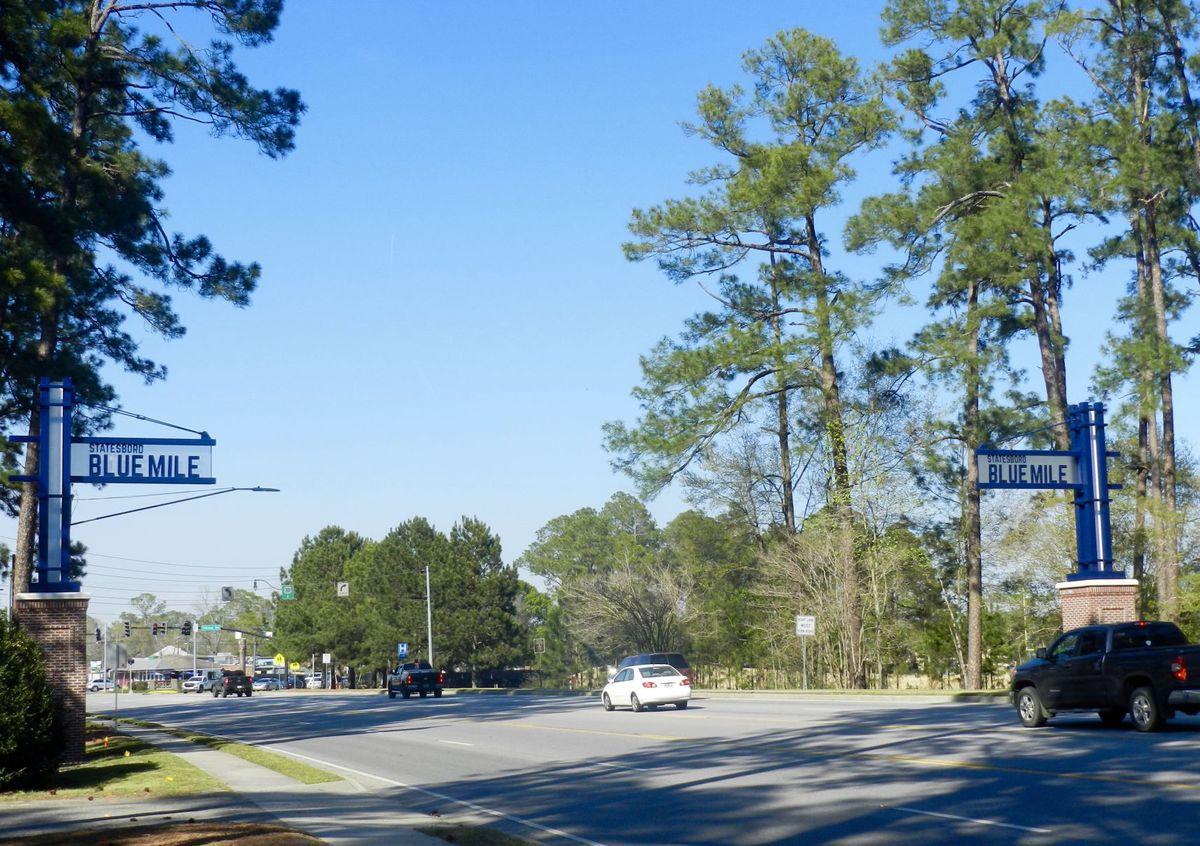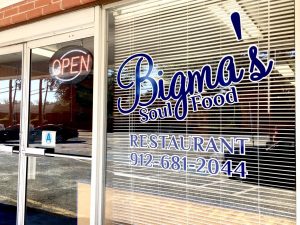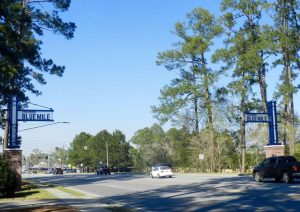Breakfast at Big Ma’s: Getting to know the next mayor of Statesboro
November 15, 2017
The George-Anne recently sat down with Mayor-Elect Jonathan McCollar for a hearty breakfast at Big Ma’s Soul Food Restaurant, where McCollar talked about his campaign, the future of Georgia Southern University and his plans for the city of Statesboro.
Below is a list of questions we asked McCollar, in addition to his responses. Topics covered include McCollar’s reaction to winning the election, how he plans to establish relationships with students at GS and his goals for diversity and quality of life in Statesboro.
Brief background
McCollar was born and raised in Statesboro. He graduated from GS with a bachelor’s degree in history and went on to obtain a master’s degree in public administration. He will assume the office of mayor on Jan. 2.
Q: Regarding the election, were you surprised that you won?
A: “Not really. And the reason why I say that is because we firmly believed there were more people who believed the way we did. It was just a matter of working to get those individuals to the polls.
I believe that most people in our community want to see a more inclusive community across the board. I believe people recognize that wages are low and that’s something we have to address. The things that we stood for, most people in the city believe them.
What data told us is that, historically, Statesboro has gone in a progressive direction. If you look at past elections, Barack Obama won Statesboro, Hillary Clinton won Statesboro. It was just Bulloch County that they weren’t winning. But the city itself is extremely progressive. The ‘a-ha moment’ for us was that [we realized] the people are much more advanced than the leadership.
I believe we are very progressive because we have Georgia Southern University, East Georgia and Ogeechee Tech. We’ve got young minds pushing the envelope. That’s the one thing that’s extremely exciting about it.
Were we nervous? Yeah. But we fundamentally believe that our campaign spoke for the people.”
Q: You talk about progressivism and leadership and advancement. What do you mean by these terms?
A: “What I mean by that is that too often the leadership here looked in the past as far as the ‘glory days of Statesboro’ and returning to that era. The truth of the matter is that the best days of this community are in front of it and not behind it.
When I think of progressivism, I think about us being proactive as far as getting the people in the position to take advantage of economic opportunities within the community. I believe that when you elect officials, you elect people that understand the government can be used for good to help people, and those are progressive ideals. Those are progressive values.”
Q: What would you like to say to your opponents?
A: “Thank you. And I say thank you because they’re both very sharp people. They’re very hard-working people. They’re good people.
I would also like them to know that I want to work with them because at the end of the day, this is still our city. I believe both Jan and John want what’s best for the city. I believe we only differed on the ideals in which we thought would make the city better.
But both of them are outstanding people. A lot of people were like, ‘Jonathan, you know in politics, they sling mud.’ No, not us, because at the end of the day, Jan is a member of our community and John is a member of our community.
The one thing that I love about it is that we kept everything above the board. We stayed respectful of each other. We just ran on the issues, and that’s one thing I really appreciate from both of them.”
Q: Jan Moore is the first female mayor in Statesboro history. You will be the first African-American mayor in Statesboro history. What does that mean to you?
A: “It comes with a responsibility, but at the same time, my goal is to make sure that we are a great city for EVERYBODY.
It’s exciting to have that novelty attached to it, but with that being said, the goal is to make sure that we become a city that is fighting for all families across the board and that we’re a city that’s inclusive of all people.”
Q: Your campaign slogan was to put the “people over politics.” How will you make sure the students of Georgia Southern University are apart of those people?
A: “This is a key piece of it. My campaign? We’re on this as we’re setting up our commissions. As a matter of fact, it’s what I was working on this morning – putting together our transition team.
With our commissions, we’ve got allocated seats specifically for Georgia Southern students to be apart of the conversations we’re talking about. The mission of these commissions will be to go out and realize the vision that the campaign set out.
We’re talking about youth development, diversity, equity and inclusion. We’re talking about economic sustainability and things of that nature. Georgia Southern students will have allotted seats on those commissions. What we’re going to do is allow the student population to decide how those seats are going to work out.
We’re in the process of planning that now. We were the only campaign that said, ‘No, we want the Georgia Southern students as a part of the decision-making process.'”
Q: During the town hall forum at the Board of Education, you said you don’t see a boundary between yourself and the students at Georgia Southern. Aside from the commission, what do you plan to do as mayor to ensure that no boundary develops?
A: “One of the key things is – and we’re already beginning this conversation now – is having the students tell us exactly what their expectations are and then we figure out exactly how we move forward from there.
A part of our transition team has already identified several students that we’re going to ask to be on [the commission]. I feel like they’re going to say yes, but at the same time, we want to be able to get their voices out.
I want to be heavily engaged with the Student Government Association, but I want to work with different bodies across the board. I want everybody to know that we have an open-door policy. You can contact me at any given moment. At the end of the day, we’ve got to be able to open those lines of communication. We’ve got to have those tough conversations so that we’re able to move the city forward.”
Q: Also during the Board of Education forum, you talked about gangs and gang violence in Statesboro. How do you begin to address such deep-seated issues?
A: “Statesboro is right off of I-16, not too far away from I-95 and not too far away from the ports, and then it has a young population. This leads anyone that’s thinking about criminal enterprise and looking at an area that they could go into, coupled with a high poverty rate, Statesboro looks like an ideal situation.
That’s what data tells us. That’s what trends tell us. That’s what we’re seeing with the growth of gang development here.
But I believe that if we give young people alternatives. If we’re able to give them something that they’re not willing to lose, then that gives them the means to say, ‘You know what, I’m not getting involved with this negative behavior because I have THIS to lose.’
That’s why youth development is so key. You want to target those young people who may be in at-risk situations and give them a choice.
A lot of times, we live in bubbles. Our bubbles are manufactured by the things that we believe and the people we come into contact with on a regular basis. If you’re able to come outside of that bubble and get introduced to new people, new things and new ideas, then your horizons expand. That’s what we want to do with our young people here.”
Q: Ever since the unfortunate and untimely death of one Michael Gatto, underage drinking has been a rather sensitive topic here in Statesboro, yet the activity continues to happen. Do you see underage drinking as a problem and if so, how would you deal with it?
A: “Yes, it is a big issue, but at the same time, it’s an issue that’s been going on for decades within this community. The only difference with the Michael Gatto situation was that Michael’s family was in a position to be able to fight back and push for reform within the city.
Since the time that I was in college, we’ve seen these issues – the underage drinking, the deaths at the club and things of that nature – it’s been a long-time issue.
Now, as the mayor of the city, I can encourage young people – ‘Hey, look, if you’re not old enough to drink, not to drink’ – but do I think I’m going to be able to stop it in totality? No. But at the same time, I want to make sure it’s our responsibility to make our city as safe as possible.
As a matter of fact, I was talking to a student on campus and she pointed out that, if you’re not 21, there’s no outlet here for [minors] to be able to get out and enjoy [themselves] in a similar capacity to those that are above the drinking age.
I think that’s a unique opportunity for businesses and the community to get out and provide some alternative things. One thing that immediately jumps to my mind is a Dave and Buster’s. That would be great here because we’ve got a young population that would definitely utilize it. Across the board, I think that we’ve got to think outside of the region as far as what we can attract to the area that can facilitate that.
It’s a tremendous opportunity.”
Q: Students at Georgia Southern often travel to places like Savannah and Pooler to eat, socialize, shop and have fun. What plans do you have in place to make sure Statesboro is a place students don’t want to leave?
A: “We have to think outside of the box. I believe we have to do more activities that young people are going to be interested in.
One thing that I thought was very unique and I thought was a lot of fun is that down in Tallahassee, they do a ‘Downtown Getdown’ before the Florida State football games. I was like, ‘Man, that would be ideal for Statesboro.’
I think that’s a unique opportunity – to block off the Blue Mile – and then on one end, you have small, young-people activities and on the other end, you have activities that are more adult-associated, with live music and vendors and things of that nature.
That gives people a reason to come downtown. That’s going to spur economic opportunity because what business would not want to be in that area when they see hundreds and thousands of people matriculating within that corridor?
I think that we have to start doing some things that are different. I think we need to embrace the identity of who we are. Our identity is that we are a very diverse Southern jewel that has a lot of opportunities when you bring all people to the table.”
Q: Students at Georgia Southern represent a majority of Statesboro’s population. It’s not inaccurate to say that we contribute greatly to the economy – tax dollars and all. With that being said, why should we trust you with the delegation and distribution of our hard-earned money?
A: “My track record as far as working and doing the things that I say I’m going to do – I’ll put that up against anybody.
At the end of the day, if I’m not held accountable to what I say that I’m going to do, four years from now, there’s going to be another election – and then you can get behind the next person that you feel is going to do a better job of that.
I’m a huge advocate for democracy. The fourth piece of my platform was actually term limits for the mayor seat as well as the city council. I believe in fresh ideas. I believe that we need to have a pipeline of leadership within our community.
If you feel that Jonathan McCollar is not doing a great job of making sure that students feel included and are a part of the process, then I encourage everyone to get out and be a part of the democratic process and get behind a candidate you believe is going to do that.
My promise to the students is that I’m going to be there. I’m going to hear from you. But at the end of the day, I have a city council that I have to work with, and if the city council is not on the same page as me and the students, then I encourage them to come to the city council meetings and make sure that their voices are heard.
I’m going to put this out there so that Georgia Southern students will know. Our campaign won the Georgia Southern district. I’m going to do everything in my power to be accessible to the students. Before now, I was reaching out to multiple student organizations to make sure that they’re a part of the campaign and that they can hear from us.
That’s what my history is. Again, I sat in your shoes. I understand the frustration when you feel like your words and your concerns are going on deaf ears. I’m here for the students.”
Q: In conclusion, what are your aspirations for the great city of Statesboro, a place that people love, cherish and call their home?
A: “Overall, I want to see the quality of life increase tremendously for people across the board. That’s what my ultimate goal is.
I will admit, I’m going to be a little selfish because, at the end of the day, when I’m sitting on my rocking chair, I don’t want to have to think about my grandkids in a city far away because they didn’t have opportunities here. I want to be able to go across town and see my grandkids when I want to.
At the end of the day, what I want is opportunity and quality of life for everybody across the board.
I think Statesboro is a unique southern jewel and I think we need to tap into what makes it special and create a future that’s bright for everyone.”












